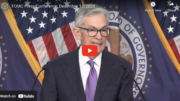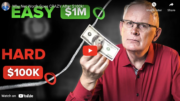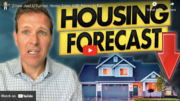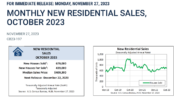The interview with Peter Schiff, conducted by Michelle Makori at the New Orleans Investment Conference, provides a comprehensive analysis of Schiff’s perspectives on the global economy, U.S. financial policies, and investment strategies. Schiff, known for his early predictions of the 2008 financial crisis, continues to offer a bearish outlook, emphasizing the impending economic challenges ahead.
Schiff’s Analysis of the Current Economic Climate:
- Schiff likens the current economic environment to that of 2007, preceding the 2008 crisis. He observes similar trends in economic data revision and a general underestimation of the looming financial crisis.
- He points to the consequences of quantitative easing and zero interest rate policies, predicting they will lead to increased interest rates, posing significant challenges to those who have borrowed extensively, including the U.S. government.
Critique of Economic Indicators and Government Policies:
- Schiff criticizes the accuracy and revisions of economic data, such as GDP and consumer spending figures, suggesting they often paint a rosier picture than reality.
- He expresses concern over the October jobs report, highlighting the rise in part-time employment and the decrease in manufacturing jobs. Schiff sees this as indicative of underlying economic weakness.
Inflation and the Federal Reserve’s Role:
- Contrary to mainstream Keynesian economics, Schiff argues that inflation is not a byproduct of economic growth but rather a result of government and Federal Reserve policies.
- He foresees a scenario where inflation worsens even as the economy weakens, challenging the Fed’s policies.
Predictions for the U.S. Dollar and Investment Strategies:
- Schiff predicts a decline in the value of the U.S. dollar, advising investment in gold and silver as a hedge against inflation.
- He believes that the current economic policies will lead to a sovereign debt and currency crisis, potentially worse than the 2008 financial crisis.
On Gold as an Investment:
- Schiff is bullish on gold, seeing it as a stable investment amidst currency devaluation and economic uncertainty. He predicts that gold prices will significantly increase once it breaks the $2,000 barrier.
Global Economic Shifts and Alternatives to the Dollar:
- He discusses the potential shift away from the U.S. dollar as the global reserve currency, suggesting that countries and investors might turn to gold or other assets.
- Schiff sees this shift as a return to a gold standard or a similar system backed by tangible assets.
Political Predictions and Their Economic Implications:
- Schiff predicts that Donald Trump will win the 2024 presidential election, attributing this to the current economic challenges under the Biden administration.
- He believes that regardless of who wins, significant economic reforms are needed to address the impending crisis.
Final Thoughts:
- Schiff reiterates the importance of preparing for economic downturns by investing in tangible assets and diversifying portfolios away from dollar-based investments.
- He remains critical of current economic policies and maintains a pessimistic outlook for the immediate future of the U.S. economy.
This interview reflects Schiff’s consistent bearish stance on the U.S. economy and his belief in gold as a key investment to weather potential financial storms. His views, while controversial to some, provide an alternative perspective to mainstream economic thought.







